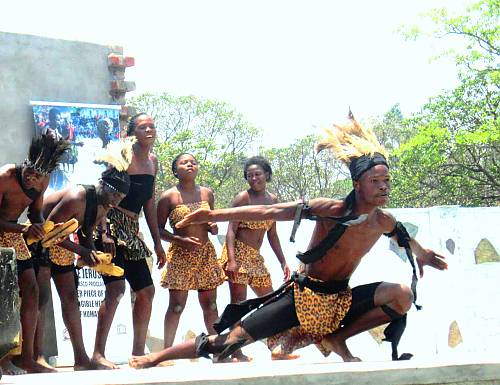Southern Africa: Enhanced national capacities and sub-regional cooperation for safeguarding of intangible cultural heritage
It is time to review and to plan for the next steps! Chinhoyi (Zimbabwe) welcomes a workshop from 24 to 26 February 2015 in order to take stock of the results of the project implemented in seven countries in southern Africa (Botswana, Lesotho, Malawi, Namibia, Swaziland, Zambia and Zimbabwe).
Thanks to this project, which aimed to enhance the sub-regional cooperation as well as the national capacities of effective implementation of the Convention for the Safeguarding of the Intangible Cultural Heritage, each of the participating countries is now dotted with the national committee on intangible cultural heritage and a pool of trainers who are ready to support safeguarding activities at the national level. In many of these countries a process has also been initiated to review or establish legislations and policies in favor of intangible cultural heritage.
Another important objective is the establishment of a sub-regional coordination platform to foster cooperation amongst southern African countries for the safeguarding of intangible cultural heritage. The Ministry of Sports, Arts and Culture of Zimbabwe recently proposed that the Chinhoyi University of Technology takes a lead in this regard. The participating countries are expected to give life to the platform with a critical mass of expertise in order to reinforce the local ownership and sustainability of the ICH safeguarding process
The project was generously funded by Government of Flanders which had also supported two previous projects in this field in southern Africa. The Flemish Interface for Cultural Heritage – FARO advised the participating countries on policy issues.

